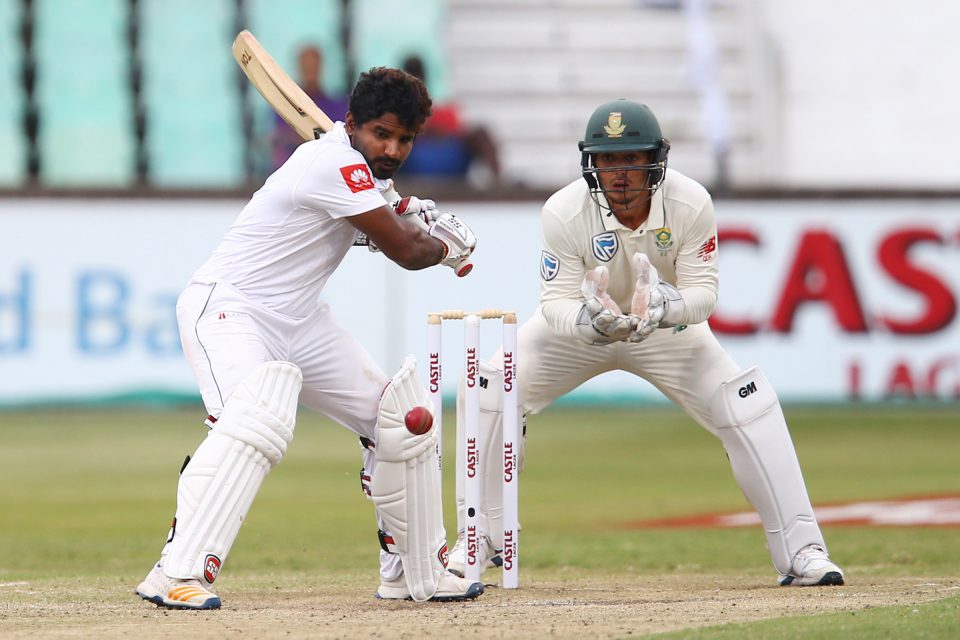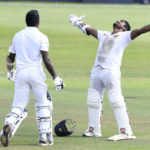Proteas have a score to settle with Sri Lanka
A prematurely burst bio-secure bubble laid waste to South Africa’s plans against world champions England. They cannot afford a repeat against Sri Lanka.
Author:
19 December 2020

Many global sporting events were affected in 2020, but the juggernaut that is the Indian Premier League (IPL) dug in its heels and found a way to let the show go on. The loudest and longest party in cricket refused to be silenced, not even by a global pandemic. Even if it played out in near silence.
“I remember a few of us watching the Mumbai Indians celebrating after winning the final, and being able to hear very clearly what was being said by the players,” said commentator Mpumelelo Mbangwa. “Normally, with all the thousands in attendance, you can barely hear yourself. But this 2020 edition of the IPL was obviously very different.”
Mbangwa paid tribute to the almighty sacrifice of hundreds of people who understood the importance of the event taking place. To be frank, the IPL provides a significant income for the world’s top cricketers. So a year without it wasn’t really an option, especially in this of all years, when tours all over the world and the ICC T20 World Cup had already been sacrificed.
“You realise the importance of why it had to happen, but then the where was important,” said Mbangwa.
The United Arab Emirates hosted the showpiece, with strict medical protocols. Mbangwa had to endure around 20 Covid-19 tests during the course of the tournament, posting some of the videos on Instagram to give fans around the world a glimpse of what they were going through.
Related article:
“You can understand why there were as many tests as there were, because you simply couldn’t be too careful. Three different venues, with so many people moving about… It was incredible.”
Of course, the IPL has the depth of pocket to take these measures and then some. It is, on a pro rata basis, one of the richest tournaments in world sport. It generates untold interest in India alone, never mind around a world confined largely to being home because of the pandemic.
“We were very aware of the responsibility we had, to deliver an exciting product to a world that was watching. Usually, you feed off the buzz of the crowd, but now we had to try and create that buzz for people at home,” said Mbangwa.
Playing without fans
It wasn’t only the commentary team that felt the silence. Out on the fields of Sharjah, Abu Dhabi and Dubai, the best international cricketers had to find a new fear, one that was independent of the hush or roar of anticipation before each delivery.
“You feel the lack of a crowd, but you’ve still got a job to do,” said Delhi Capitals star Kagiso Rabada. “When I’m at the top of my mark, the only thing I’m worried about is the batter at the other end. There’s a battle there that I’ve gotta win.”
Those who normally feed off the mob, raising their game to match the buzz, had to revisit their memories of old, when they were just making their way in the game.
“You would have to think that some of these guys haven’t played in front of an empty stadium since school days. And by school, I mean really early in high school, on a random Wednesday afternoon, when parents couldn’t get off work,” said Mbangwa.
If it was bizarre, the 2020 edition of the IPL did a terrific job of masking it. The standard of cricket was phenomenal, with plenty of drama and no shortage of outrageous skill. “You’re talking about the best players in the world. They shouldn’t surprise us, but to see those kinds of thrillers, again and again, was special,” added Mbangwa.
He also had a word for the ground staff, who produced surfaces that were encouraging to stroke players, spinners and speedsters like Rabada. “They did a magnificent job. Remember, they didn’t have the luxury of resting surfaces for days, and allowing one to firm up. It was relentless demand, but the pitches were very consistent. That is not easy in that environment.”
The show went on and the strict health regulations followed by so many people at once encouraged the rest of the cricketing world mightily. The recent visit to South Africa by world champions England, however, was a lesson in just how fragile these bio bubbles can be.
There is a greater responsibility on individuals not to put themselves at risk, for they run the very real prospect of derailing an entire series. England fast bowler Jofra Archer was in the firing line earlier this year when he drove home to see his dog after a Test at Southampton. What he was supposed to do was drive straight from the secure bubble in the south of England to the next facility in Manchester. His decision nearly cost the England and Wales Cricket Board millions of pounds in lost revenue, and it was a lesson for all.
SA’s porous bubble
South Africa felt the financial pinch of a compromised bubble environment when two early positive Covid-19 tests in their camp meant they felt like they were living in a different world to England, despite sharing the lavish Vineyard Hotel facility.
While the world champions went off and played golf or relaxed at the bar and picturesque pool, Mark Boucher’s team were holed up in their rooms for days, nervously waiting for their next round of tests.
The fear of cancelling the tour always hovered, and there was a sense of inevitability when the one-day international series was eventually postponed by mutual consent. England’s star players have lived an isolated lifestyle for most of the year, as they hosted the West Indies, Pakistan, Australia and Ireland in a single summer.
As many of us found during the darkest days of the national lockdown, it never gets normal.
Rabada was criticised in some quarters for likening the isolated experience to being in a luxury prison. To be in a team environment, however, where the natural instinct is to be together, and then suddenly have to be mostly apart is a massive shift in behaviour.
Related article:
The lessons learnt from the England visit will have to be put into practice quickly for the December visit of Sri Lanka, who play in a Test series of terrific importance to the South African team. It is convenient to forget that it was against the islanders, in early 2019, that the alarm bells truly started tolling for South African cricket fortunes.
In pandemic parlance, one might say South African cricket started displaying worrying symptoms back then. Kusal Perera played the innings of a lifetime in Durban, against a world-class attack.
Ben Stokes provided a similar effort at Headingley, in The Ashes that followed the 2019 Men’s Cricket World Cup, but feats of that nature have come to be expected of the premier all-rounder in the game.
What Perera did in Durban was so unexpected, so brutally administered and outrageously achieved, that South Africa have been searching for their composure ever since.
Sri Lanka proved that Perera’s Kingsmead moment was no fluke by sealing the series in Port Elizabeth, to become the first Asian side to win a series on South Africa’s shores. Not the romantic Pakistan sides of the 1990s, led by Inzamam-ul-Haq and the like. Not even the best of India, be it under Sourav Ganguly, Sachin Tendulkar or even Virat Kohli.
No, the honour went to the little island across the way from Chennai. What is more, they did it without their own illustrious trio of Muttiah Muralitharan, Kumar Sangakkara or Mahela Jayawardene. It was a win for the little guy. It was a win for the growth of the game, and a win for blind hope, because Sri Lanka had arrived seemingly in disarray, at loggerheads with administrators and supposedly in no state to push South Africa for very long.
Thus, it was an incredible upset. It spoke of one team’s preparations for the moment and the other’s preoccupation with what was to follow soon after.
Batsmen have to make amends
South Africa will now seek to make amends on the Highveld, on fast and bouncy pitches, with tearaway fast bowler Anrich Nortje unleashed on the islanders. The home batsmen will have to do the legwork, though, because serious runs have been lacking for a while.
Aiden Markram has notched three centuries on the trot in domestic cricket, but he desperately needs a reassuring summer at the top of the order. His talent is unquestionable, but he faces a vigorous spin examination if he is to reassure those who have so much hope in him.
Related article:
Not too long ago, the former Under-19 World Cup-winning captain was being touted as the next Test captain. Injury and, more importantly, a sustained loss of form, have halted those conversations. There are other young batters knocking on the door now and their numbers are building a persuasive case.
Markram is certainly not the only South African batsman in need of a prosperous summer, but his early season form shows signs of a revival. South African cricket has emerged from a dark and dramatic winter, but now it must spring into action.
Losing is a habit the Proteas must resolve to kick in 2021, because it is not endearing to sponsors or fans. There is a score to settle against Sri Lanka before a landmark voyage to Pakistan in late January.
Beyond that, Australia will come as a late summer treat, looking to exorcise their own sandpaper demons from 2018.
But as new captain Quinton de Kock will surely know, the most important battle is the one right in front of them. To lose sight of that would be to tempt fate to intervene, as it did so violently in early 2019.
No one wants to go back there.



